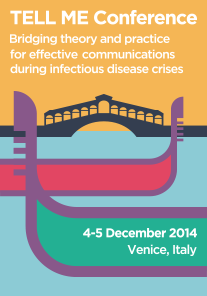Ambivalent risk perception in health care workers
When facing public health threats, health care professionals may behave and act like everybody else. This is the main conclusion of an analysis carried out by Anat Gesser-Edelsburg, Nathan Walter and Manfred S. Green – three experts from the TELL ME consortium – that has been published on the American Journal of Infection Control. Health care professionals are a mediating channel between health agencies and the public since they represent the health care system but are also part of the public. This mean that they are also a risk group. Thus, their risk perception could affect their risk analysis.
By employing an online survey of Israeli health care professionals and the general public in Israel, the TELL ME experts found that a relatively low risk perception from health care workers is associated with a tendency to base their behavior on analytical knowledge. However, if the risk perception is high, no significant difference was found between Israeli health professionals and the Israeli general public, meaning that they both base their attitudes more on emotions and personal experience than on analytical knowledge.
This ambivalence must be kept in mind by those organizations that have to manage public health response.


